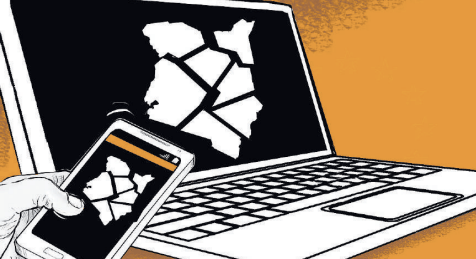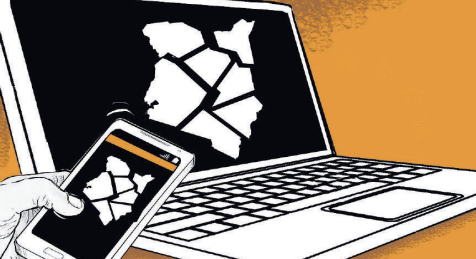
WAIKENDA: Rise of tribalism in the digital age
In the past, tribalism was confined to physical spaces
A viable solution to bad leadership can be found only if Kenyans address the plague of tribalism.
In Summary

Audio By Vocalize

One of the reasons Kenya cannot develop at the rate that it should is tribalism.
The country has come a long way since Independence. At Independence, the country was grappling with an array of problems, notably poverty, ignorance and diseases.
Although it has made some positive strides, it still has a myriad of frustrating burdens.
Today, many citizens grapple with unemployment and poverty, which stem from inequality, questionable economic decisions, unsustainable foreign debt and the infernal scourge of deep corruption.
All these problems are a result of poor leadership. Poor leadership has endured for ages because of tribalism. A viable solution to bad leadership can be found only if Kenyans address the plague of tribalism.
Celebrated Japanese writer Ryunosuke Akutagawa once said, “Individually we are one drop. Together, we are an ocean.”
Tribalism is not a naturally occurring problem. It was a creation of the colonialists who succeeded in using the divide-and-rule technique to conquer our country.
This is where an entity gains and maintains political power by using divisive measures. Today, bad leaders have perfected the art of divide and conquer.
They ensure that ethnic groups disagree and fight with one another so that they will not unite and vote against them.
It is the same strategy that was used by the British during colonial rule to keep Kenyans divided so that they would be easier to govern.
Before the colonialists came, tribalism was unheard of. Save for the occasional raids between neighbouring tribes, Kenyan communities used to coexist virtually peacefully.
When the British arrived, they utilised the ‘divide and rule’ technique, just as in every other territory they conquered. They created divisions among the different ethnicities.
They also used it to pit different regions against each other. The British used the policy to their advantage in many ways.
For example, they would give preferential treatment to certain groups over others. This would create resentment and jealousy among the groups.
They also used malice and prejudice to pit tribes against each other. The colonialists used the policy for many years.
It had a long-lasting negative impact on Kenyan society. It created massive divisions among the people that are still evident to this day.
Unfortunately, the African political leaders who took over from the colonialists perfected the art of divide and rule.
Poor leadership can only be sustained if people remain divided along tribal lines. They are much easier to control.
Selfish leaders are wary of the transparent fact that ‘Umoja ni nguvu.’ The negative tribal stereotypes that were introduced by the British are now peddled by self-seeking political leaders who use them as a tool to cling to power.
They rely on the infamous ‘mtu wetu’ tribal backing whenever they are in the wrong or exposed as inept or incompetent.
When you interact with people from different ethnicities, you realise that we are one people with so many things in common, and those prejudices are pure lies and a creation of malice.
Tribalism is responsible for corruption, rigged elections, underdevelopment and violence like the gruesome post-election bloodshed that left the country with permanent scars following loss of lives and wanton destruction of property.
It is also responsible
for inequality and unfair distribution of resources.

In the past, tribalism was confined to physical spaces